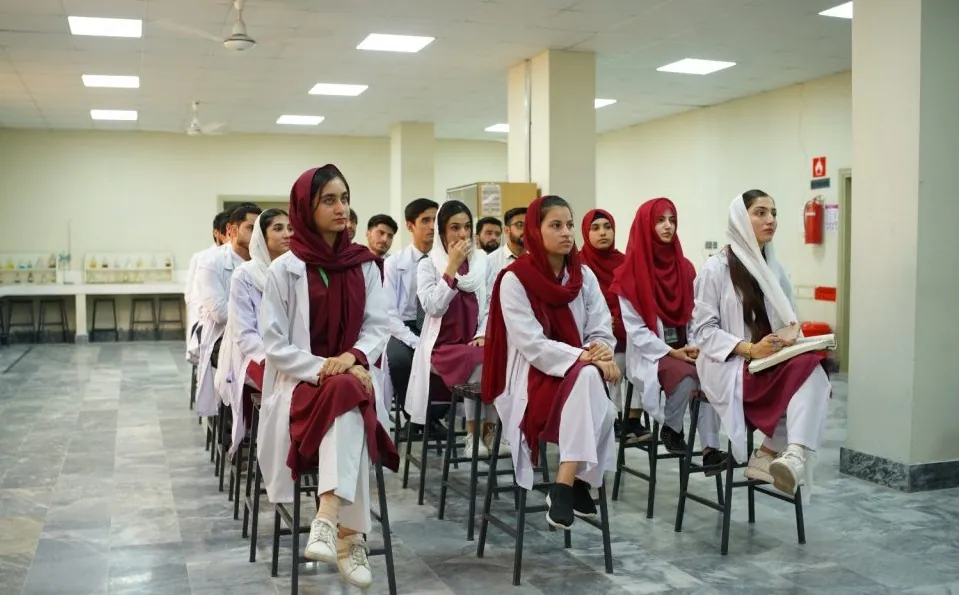The Punjab government has recognized the pressing need to tackle the shortage of Teaching Jobs in schools across the province. With an acute deficit of educators, estimated at 115,000, urgent measures are imperative to ensure quality education for students. In response, the government has unveiled plans to recruit a substantial number of visiting teachers, marking a pivotal step towards resolving this critical issue.
Previous Recruitment Efforts
Historically, the recruitment of teaching staff in Punjab has faced challenges, with significant intervals between hiring phases. The last major recruitment initiative occurred in 2018, during the tenure of the PML-N government. Subsequently, under the Pakistan Tehreek-i-Insaf (PTI) administration, limited appointments were made, primarily concentrated in specific districts such as Murree and Mianwali.
Introduction of New Hiring Processes
Under the leadership of the PTI government, innovative hiring processes akin to the Punjab Public Service Commission (PPSC) were introduced. Notably, the initiative of College Teaching Interns (CTIs) was launched to address vacancies in colleges. This program provided recent graduates with opportunities to contribute to the education sector while receiving a monthly stipend.
Current Endeavors: Visiting Teacher Recruitment
The government’s current focus lies on recruiting 30,000 visiting teachers for schools across Punjab. These Teaching Jobs will operate on a visiting basis, with their compensation tied to the number of lectures delivered. This approach aims to swiftly alleviate the shortage of teaching staff while ensuring flexibility in resource allocation.
Financial Allocations and Responsibilities
To support the employment of visiting teachers, the government plans to allocate additional funds to school councils. These councils will assume responsibility for disbursing salaries to visiting Teaching Jobs and mobilizing resources to meet other school-related expenses. This decentralized approach empowers local communities to actively participate in addressing educational needs.
Advocacy for Permanent Recruitment
While the introduction of visiting Teaching Jobs offers a short-term solution, concerns have been raised regarding the sustainability and efficacy of this approach. Rana Liaqat, the General Secretary of the Punjab Teachers Union (PTU), advocates for permanent recruitment as the definitive remedy to the staffing shortfall. Emphasizing the importance of stability in educational staffing, Liaqat underscores the necessity for permanent appointments to ensure continuity and quality in education delivery.
Conclusion
In grappling with the challenges of staffing shortages in the education sector, the Punjab government’s initiative to recruit visiting Teaching Jobs marks a significant stride towards ameliorating the situation. However, the long-term efficacy of this approach hinges upon a balanced strategy that integrates both short-term solutions and sustainable, permanent recruitment practices. By prioritizing the recruitment and retention of qualified educators, Pakistan can fortify its educational infrastructure and pave the path for a brighter future for its students.
FAQs about Teaching Jobs in Pakistan
Q1: What are teaching jobs in Pakistan?
A1: Teaching jobs in Pakistan refer to employment opportunities for individuals to work as educators in schools, colleges, universities, and other educational institutions across the country.
Q2: How can I find teaching jobs in Pakistan?
A2: Teaching jobs in Pakistan can be found through various channels such as online job portals, educational institution websites, newspaper advertisements, and recruitment agencies.
Q3: What qualifications are required for teaching jobs in Pakistan?
A3: Qualifications for teaching jobs in Pakistan typically include a relevant academic degree (e.g., Bachelor’s or Master’s in Education or a subject area), teaching certification (if applicable), and proficiency in relevant teaching methodologies.
Q4: What subjects or levels can I teach in Pakistan?
A4: Teaching opportunities in Pakistan cover a wide range of subjects and levels, including primary, secondary, and higher education. Common subjects include Mathematics, Science, English, Urdu, Social Studies, and more, depending on the educational institution’s curriculum.
Q5: Are there opportunities for foreign teachers to work in Pakistan?
A5: Yes, there are opportunities for foreign teachers to work in Pakistan, particularly in international schools, language institutes, and higher education institutions. However, eligibility criteria may vary, and obtaining the necessary work permits and visas is essential.
Q6: What benefits are typically offered with teaching jobs in Pakistan?
A6: Benefits offered with teaching jobs in Pakistan may include competitive salaries, health insurance, pension plans, paid leave (such as annual leave and sick leave), professional development opportunities, and access to educational resources.
Q7: How can I prepare for a teaching job interview in Pakistan?
A7: To prepare for a teaching job interview in Pakistan, it’s essential to research the educational institution, familiarize yourself with the curriculum and teaching methodologies, practice common interview questions, showcase your teaching experience and qualifications, and demonstrate your passion for education.
Q8: Are there opportunities for career advancement in teaching jobs in Pakistan?
A8: Yes, there are opportunities for career advancement in teaching jobs in Pakistan. Educators can progress to leadership roles such as department heads, coordinators, principals, and academic directors through experience, further education, and professional development initiatives.
